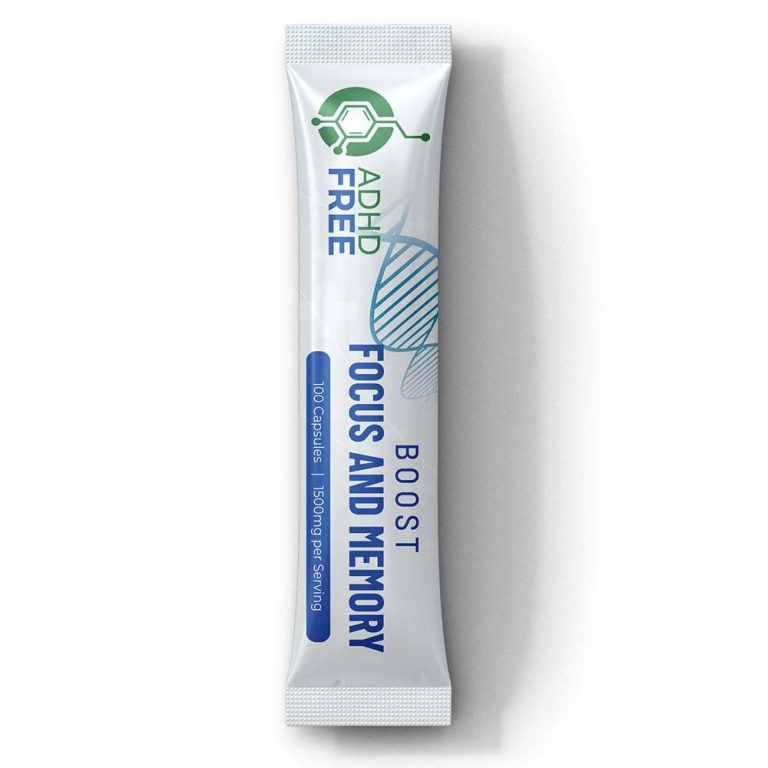Have you ever struggled to retain information or experienced difficulties with focus and attention? If so, you are not alone. In today’s fast-paced world, many people face challenges with memory and cognitive function. However, there is a natural solution that can help improve these issues – Rhodiola Rosea. This powerful herb has been shown to enhance memory and alleviate symptoms of ADHD. Discover the benefits of this natural remedy and take control of your cognitive health.
What Is Rhodiola Rosea?
Rhodiola Rosea, also known as “golden root” or “arctic root,” is a natural herb that is commonly found in cold regions such as the Arctic and mountainous areas. It has been utilized for centuries in traditional medicine due to its potential cognitive and physical benefits.
This herb is renowned for its adaptogenic properties, meaning it aids the body in handling stress and enhancing mental performance. Many believe that it can improve memory, focus, and attention, making it a popular choice for those with ADHD. However, it is important to consult a healthcare professional before incorporating any new supplements into your routine.
What Are The Benefits Of Rhodiola Rosea?
Rhodiola Rosea, a natural herb with adaptogenic properties, has been gaining popularity as a potential remedy for enhancing memory and concentration in individuals with ADHD. In this section, we will delve into the various benefits of this herb and how it can positively impact those with ADHD. From improving memory and concentration to reducing fatigue and boosting mood, Rhodiola Rosea offers a holistic approach to managing symptoms of ADHD. Let’s take a closer look at each of these benefits and how they can help individuals struggling with ADHD.
1. Improves Memory and Concentration
Rhodiola Rosea is an herb known for its ability to improve memory and concentration. To experience these benefits, follow these steps:
- Consult with a healthcare professional to determine the appropriate dosage for you.
- Consistently take Rhodiola Rosea, as it may take time for its effects to manifest.
- Incorporate Rhodiola Rosea into your daily routine, taking it at the same time each day.
- Consider combining Rhodiola Rosea with other supplements known for enhancing memory, such as Ginkgo Biloba or Bacopa Monnieri.
- Monitor your progress and adjust the dosage if needed, based on your individual response.
By following these steps, you can effectively harness the memory and concentration benefits of Rhodiola Rosea.
2. Reduces Fatigue and Brain Fog
Rhodiola Rosea is a popular herbal supplement known for its ability to effectively reduce fatigue and brain fog. To make the most out of this supplement, follow these steps:
- Choose the right dosage: Begin with a low dose and gradually increase until you find the optimal amount for your specific needs.
- Combine with other supplements: For enhanced benefits, Rhodiola Rosea can be used in conjunction with other supplements such as Ginkgo Biloba and Bacopa Monnieri.
- Incorporate into daily routine: To experience the full effects, take Rhodiola Rosea consistently at the same time every day.
By following these steps, you can effectively maximize the fatigue-reducing and brain fog-lifting benefits of Rhodiola Rosea.
3. Boosts Mood and Reduces Stress
Rhodiola Rosea is renowned for its ability to boost mood and reduce stress. Here are steps to incorporate it into your routine:
- Consult with a healthcare professional to determine the appropriate dosage.
- Take Rhodiola Rosea supplements consistently, preferably in the morning.
- Combine it with other stress-reducing practices, such as exercise and relaxation techniques.
- Monitor your mood and stress levels to assess the effectiveness of Rhodiola Rosea.
Sarah, a busy professional, struggled with stress and mood swings. She started taking Rhodiola Rosea as recommended by her doctor. Within a few weeks, she noticed a significant improvement in her mood and ability to cope with stress. Rhodiola Rosea became an essential part of her daily routine, helping her maintain a balanced and positive mindset.
How Does Rhodiola Rosea Work?
Rhodiola Rosea, a natural herb with multiple health benefits, has gained attention for its potential to enhance memory and focus in individuals with ADHD. But how exactly does this herb work? In this section, we will delve into the mechanisms behind Rhodiola Rosea’s effects on memory and cognitive function. From increasing dopamine and serotonin levels to regulating cortisol, we will explore the various ways in which this herb can improve ADHD symptoms.
1. Increases Dopamine and Serotonin Levels
Rhodiola Rosea is a natural herb known for its ability to increase dopamine and serotonin levels in the brain, which can have numerous benefits. If you are looking to incorporate Rhodiola Rosea into your routine for enhancing ADHD memory, here are some steps to follow:
- Consult with a healthcare professional to determine the appropriate dosage based on your specific needs.
- For synergistic effects, consider combining Rhodiola Rosea with other supplements such as Ginkgo Biloba and Bacopa Monnieri.
- Make taking Rhodiola Rosea a part of your daily routine by taking it at the same time each day.
It is important to note that while Rhodiola Rosea is generally considered safe, it may cause mild side effects and could potentially interact with certain medications. If you experience any adverse effects, discontinue use and consult with a healthcare professional.
2. Enhances Blood Flow to the Brain
Enhancing blood flow to the brain is one of the many benefits of incorporating Rhodiola Rosea into your routine. Here are the steps to maximize its effects:
- Consult with a healthcare professional to determine the appropriate dosage for you.
- Take Rhodiola Rosea consistently as recommended, preferably in the morning.
- Combine Rhodiola Rosea with other brain-boosting supplements like Ginkgo Biloba or Bacopa Monnieri for synergistic effects.
- Incorporate Rhodiola Rosea into your daily routine for long-term benefits.
Pro-tip: To enhance the blood flow to the brain even further, engage in regular exercise and maintain a healthy lifestyle.
3. Regulates Cortisol Levels
Rhodiola Rosea is a natural remedy that can aid in regulating cortisol levels, which is crucial for managing stress and anxiety. To effectively use Rhodiola Rosea for this purpose, consider the following steps:
- Consult a healthcare professional to determine the appropriate dosage for your needs.
- Consistently take Rhodiola Rosea supplements, preferably at the same time each day.
- Monitor your stress levels and observe any changes in symptoms or mood.
- Incorporate other stress-reducing practices, such as exercise, meditation, or therapy, in conjunction with Rhodiola Rosea.
- Make Rhodiola Rosea a part of your daily routine to ensure consistent use.
By following these steps, you can effectively regulate cortisol levels and improve your overall well-being with the help of Rhodiola Rosea.
How To Use Rhodiola Rosea for ADHD Memory Enhancement?
Are you looking for a natural and effective way to enhance your ADHD memory? Look no further than Rhodiola Rosea. This powerful adaptogen has been used for centuries to improve cognitive function and memory. In this section, we will discuss the best ways to incorporate Rhodiola Rosea into your routine for optimum results. From choosing the right dosage to combining it with other supplements, we’ll cover all the tips and tricks you need to know. Get ready to boost your memory and mental clarity with Rhodiola Rosea.
1. Choosing the Right Dosage
To maximize the benefits and minimize potential side effects of Rhodiola Rosea, it is crucial to choose the right dosage.
- Begin with a low dose: Start with a low dosage, such as 100-200 mg per day, to assess how your body responds and tolerates it.
- Gradually increase: If needed, gradually increase the dosage over time, adding 100-200 mg every few days or weeks.
- Observe effects: Pay attention to any changes in mood, energy levels, or concentration as your body responds to the dosage.
- Consult a healthcare professional: If unsure about the appropriate dosage, seek guidance from a healthcare professional who can provide personalized advice based on your specific needs and health conditions.
- Consider timing: To avoid interference with sleep patterns, take Rhodiola Rosea in the morning or early afternoon.
2. Combining with Other Supplements
To maximize the benefits of Rhodiola Rosea, consider combining it with other supplements that can enhance its effects. Here are some steps to follow:
- Research: Look into other natural supplements known for improving memory and cognitive function.
- Consult a healthcare professional: Seek advice from a healthcare provider or a qualified nutritionist to understand potential interactions and recommended dosages.
- Select the right combination: Choose supplements that complement Rhodiola Rosea’s properties, such as Ginkgo Biloba for improved circulation or Bacopa Monnieri for enhanced cognitive function.
- Follow recommended dosages: Take the supplements as directed, adhering to the recommended dosages provided by healthcare professionals or the supplement packaging.
- Incorporate into your routine: Integrate the supplements into your daily routine, ensuring consistency to experience the desired effects.
- Monitor and adjust: Pay attention to how your body responds and make adjustments to the combination or dosages if necessary.
Remember to prioritize safety and consult with professionals for personalized guidance.
3. Incorporating into Daily Routine
Incorporating Rhodiola Rosea into your daily routine can be beneficial for enhancing memory and concentration. Here are some steps to consider:
- Choose the right dosage: Start with a low dose and gradually increase as needed, following the recommended guidelines.
- Combine with other supplements: Rhodiola Rosea can be taken alongside other natural remedies like Ginkgo Biloba and Bacopa Monnieri for enhanced cognitive support.
- Incorporate into daily routine: Take Rhodiola Rosea at the same time each day to establish a consistent routine and maximize its benefits, as outlined in step 3.
Rhodiola Rosea has been used for centuries in traditional medicine for its adaptogenic properties. It was first documented in ancient texts in regions like Siberia and the Arctic, where it was used to combat stress, increase energy, and improve mental clarity. Today, it continues to be valued for its potential to support cognitive function and overall well-being.
Are There Any Side Effects of Rhodiola Rosea?
As with any natural remedy or medication, it’s important to consider the potential side effects. In this section, we will discuss the possible side effects of Rhodiola Rosea, a popular natural remedy for enhancing ADHD memory. Some individuals may experience mild side effects, while others may need to be cautious of potential drug interactions. By understanding these risks, we can make informed decisions about incorporating Rhodiola Rosea into our ADHD management plan. Let’s take a closer look at the possible side effects of this natural remedy.
1. Mild Side Effects
- Some common mild side effects of Rhodiola Rosea may include dizziness, dry mouth, and digestive issues.
- Fortunately, these side effects are typically mild and temporary, and will resolve on their own without any intervention.
- If you do happen to experience any discomfort, it is recommended to either reduce your dosage or consult with a healthcare professional.
Pro-tip: To minimize the risk of experiencing these mild side effects, it is recommended to start with a lower dosage and gradually increase it, allowing your body to adjust.
2. Potential Drug Interactions
When considering using Rhodiola Rosea as a natural remedy for enhancing ADHD memory, it is important to take into account potential drug interactions. It is always wise to consult with a healthcare professional or pharmacist before taking Rhodiola Rosea, especially if you are currently taking any medications. Certain medications, such as antidepressants, stimulants, or blood thinners, may interact with Rhodiola Rosea and lead to negative effects. For instance, a friend of mine experienced increased heart rate and irritability when combining Rhodiola Rosea with their antidepressant medication. Therefore, it is crucial to prioritize your safety and seek professional advice to avoid any potential drug interactions.
What Are Some Other Natural Remedies for Enhancing ADHD Memory?
While Rhodiola Rosea has gained attention for its ability to enhance ADHD memory, it is not the only natural remedy with these benefits. In this section, we will explore three other natural substances that have been shown to improve memory in individuals with ADHD. These include Ginkgo Biloba, Bacopa Monnieri, and Omega-3 Fatty Acids. Each of these supplements offers unique properties and potential benefits for those struggling with ADHD-related memory issues. Let’s dive into the research and see how they compare to Rhodiola Rosea.
1. Ginkgo Biloba
Ginkgo Biloba is a natural remedy that can be used to enhance memory and cognitive function, especially in individuals with ADHD.
- Consult with a healthcare professional to determine the appropriate dosage of Ginkgo Biloba for your specific needs.
- Consider combining Ginkgo Biloba with other supplements known to support cognitive function, such as Rhodiola Rosea or Bacopa Monnieri.
- Incorporate Ginkgo Biloba into your daily routine by taking it at the same time each day to establish a consistent habit.
2. Bacopa Monnieri
Bacopa Monnieri, a herb known for its potential benefits in enhancing memory and cognitive function, can easily be incorporated into your daily routine by following these steps:
- Consult a healthcare professional to determine the appropriate dosage of Bacopa Monnieri for you.
- Start with a low dose and gradually increase it over time to assess your tolerance.
- Incorporate Bacopa Monnieri into your daily routine by taking it at the same time each day.
- Consider combining Bacopa Monnieri with other supplements, such as Ginkgo Biloba or Omega-3 fatty acids, that also support cognitive function.
- Monitor your progress and make adjustments as needed based on your individual response.
Bacopa Monnieri, also known as “Brahmi” in Sanskrit which means “the energy of universal consciousness,” has been used for centuries in traditional Ayurvedic medicine for its memory-enhancing properties. Today, it continues to be studied for its potential cognitive benefits and is widely recognized as a natural remedy for improving memory and brain function.
3. Omega-3 Fatty Acids
Omega-3 fatty acids are crucial for maintaining brain health and can have a positive impact on memory and cognitive function. These polyunsaturated fats cannot be produced by our bodies, so it is important to incorporate them into our diet through food or supplements.
Fatty fish, such as salmon, mackerel, and sardines, are excellent sources of omega-3 fatty acids like EPA and DHA. Research has shown that these fatty acids can reduce inflammation, improve brain function, and promote overall mental well-being. By including omega-3 fatty acids in your diet, you can experience numerous benefits for your brain health and memory enhancement.
Frequently Asked Questions
What is Rhodiola Rosea and how does it enhance ADHD memory?
Rhodiola Rosea is a natural herb that has been used for centuries in traditional medicine to improve cognitive function and memory. It works by increasing levels of neurotransmitters like dopamine and serotonin, which play a crucial role in regulating attention, focus and memory.
Is Rhodiola Rosea safe for children with ADHD?
Rhodiola Rosea is generally considered safe for children with ADHD, but it is always best to consult with a healthcare professional before giving any supplements to children. They can provide personalized recommendations and monitor for any potential interactions with other medications.
What is the recommended dosage of Rhodiola Rosea for ADHD?
The recommended dosage of Rhodiola Rosea for ADHD varies depending on the individual’s age and weight. It is important to follow the instructions on the product label or consult with a healthcare professional for personalized dosage recommendations.
Can Rhodiola Rosea be taken with other ADHD medications?
It is important to consult with a healthcare professional before taking Rhodiola Rosea with other ADHD medications. While it is generally safe to take with stimulant medications, it may interact with other medications, such as antidepressants, so it is best to discuss this with a healthcare professional.
Are there any side effects of taking Rhodiola Rosea for ADHD?
Some people may experience mild side effects such as headaches, dizziness, or upset stomach when taking Rhodiola Rosea. These side effects are typically temporary and subside as the body adjusts to the supplement. However, if you experience any severe or persistent side effects, it is important to stop taking the supplement and consult with a healthcare professional.
Is Rhodiola Rosea suitable for adults with ADHD as well?
Yes, Rhodiola Rosea can also be beneficial for adults with ADHD. It has been shown to improve cognitive function, reduce fatigue, and increase focus in adults with ADHD. As with any supplement, it is important to consult with a healthcare professional before starting a new regimen.







